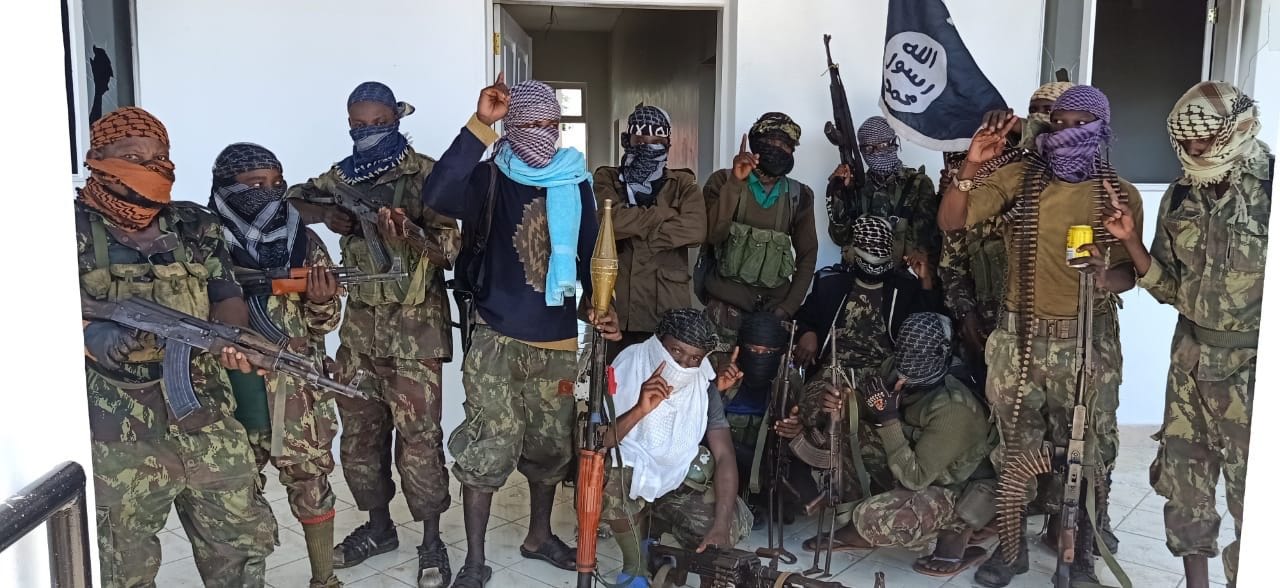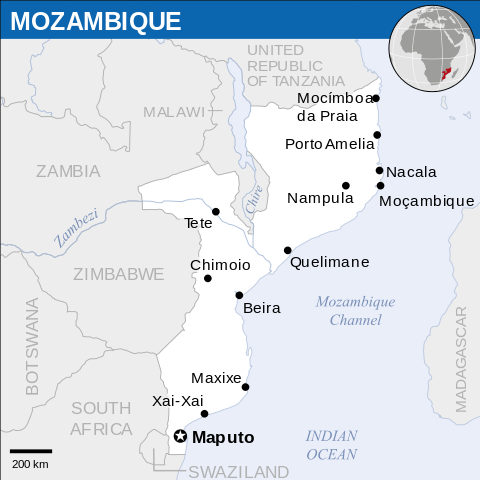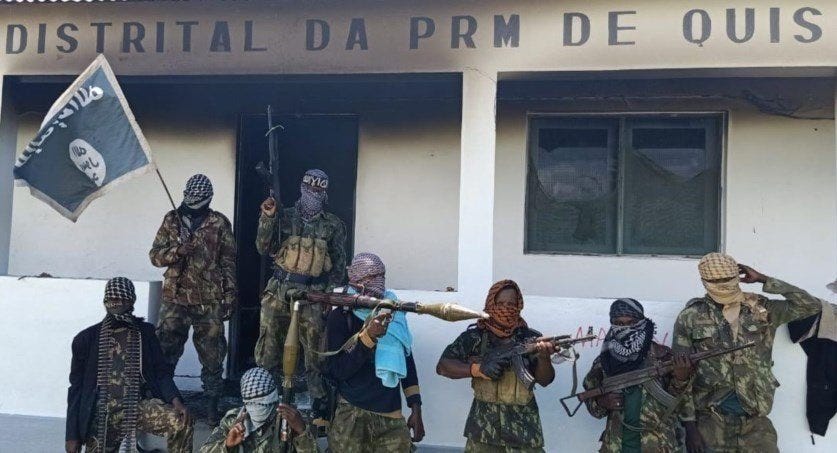The U.S. Increases its Involvement in Mozambique's Fight Against Jihadist Insurgents
American Special Operations Forces began training Mozambican marines this week as part of a program to “support Mozambique’s efforts to prevent the spread of terrorism and violent extremism.” The Islamist insurgency in Mozambique dates back to at least 2017 and has reportedly killed over 2,000 civilians and displaced 670,000 others. In addition to the considerable human suffering caused by the conflict, the insurgency has significantly disrupted economic and commercial activity in the region.
Days before the training program’s formal launch, the U.S. State Department designated the “Islamic State of Iraq and Syria – Mozambique (ISIS-Mozambique)” as a Foreign Terrorist Organization (FTO). The network is more commonly identified as the Islamic State in Mozambique (ISM) or (a part of) the Islamic State Central Africa Province (ISCAP).
The researcher Tore Hamming provides clarity on the multiple names associated with the organization:
“The militant group’s official name is Ahlu Sunnah wa-l-Jama’ah (ASWJ), but it is known locally as al-Shabab—though no relation to the Somalia-based al-Qaeda-affiliate—and is now referred to internationally as the Islamic State in Mozambique.”
The insurgency is largely concentrated in Mozambique’s predominantly Muslim northeastern province of Cabo Delgado, although regional militants have successfully attacked inside of Tanzanian territory.
Mozambique had previously attempted to shore up its counterinsurgency efforts by hiring private military contractors. Russia’s Wagner Group briefly operated in Cabo Delgado, but they withdrew after several employees were killed. The South African Dyck Advisory Group (DAG) was also hired and has subsequently been accused of human rights abuses. Mozambique requested international support and reached an agreement with the European Union in 2020 for training, logistical, and medical assistance.
The Islamic State in Mozambique
According to the State Department’s assessment:
“ISIS-Mozambique, also known as Ansar al-Sunna (and locally as al-Shabaab in Mozambique), among other names, reportedly pledged allegiance to ISIS as early as April 2018, and was acknowledged by ISIS-Core as an affiliate in August 2019.”
Historian Eric Morier-Genoud believes the insurgency has origins in a religious sect that emerged around 2007 in Cabo Delgado’s Balama district. As the movement gained momentum and built an ideological infrastructure, it reportedly clashed with the government and local communities.
Morier-Genoud places emphasis on local conditions and dynamics:
“There certainly have been external influences and manipulations, and Al-Shabaab has indeed linked up with ISIS, but it is doubtful that these factors radically and definitively altered the nature of the insurgents.
…
The sect probably shifted to armed jihadism as a consequence of the repression it experienced from the mainstream Muslim organizations and, later on, the state – the latter’s involvement possibly tipping the sect into abandoning its approach of withdrawing from society.”
Tore Hamming has identified certain defining events in the organization’s move towards Islamic State affiliation and its building of international ties:
“The first sign that the insurgency was changing character appeared in the form of a photograph in which six militants are standing and sitting in front of a flag; the image began circulating on the encrypted platform Telegram in May 2018 with a message that ASWJ had pledged allegiance to Islamic State caliph Abu Bakr al-Baghdadi, in effect becoming what observers have called the Islamic State in Mozambique (ISM).
…
Indicative of the new organizational relationship, on June 4, 2019, the Islamic State issued its first official communique claiming an attack in Mozambique, which was soon followed by photos of spoils from the attack. In another indication of the linkage, on July 24, ISCAP issued a video pledging allegiance to al-Baghdadi.”
Islamic State Narratives
America’s military involvement in Mozambique will likely be a subject of focus for jihadist media operatives. U.S. military intervention and support for governments perceived as oppressive towards Muslims are primary grievances often expressed in militant Islamist discourse.
The Islamic State seemingly anticipated American interference in its weekly newsletter al-Naba in the summer of 2020:
“And before the Crusader states in Europe and America decide to send their forces there and make that area a new field for the war on the Islamic State, and what pertains to that from difficulties similar to what they face in their endless war in West Africa, they are trying today to get the 'South Africa' government and its army involved in leading the war there.”
Mozambique contains some of the world’s largest natural gas reserves and the insurgency has hindered energy development projects. The violence has prompted international oil and gas companies such as ExxonMobil and Total to press Mozambique’s government to deploy additional security forces in the region.
The foreign exploitation of resources in Muslim lands is another historically galvanizing issue and the Islamic State preemptively crafted a framework to include this aspect last year:
“There is nothing in it that interests the Crusaders besides its huge reserves of different natural resources and in which American, French and South African companies jointly invest. And Russian and Chinese companies are ambitious to find for themselves a foothold in them as well.”
Further American Involvement?
These developments ultimately raise the possibility of future U.S. operational expansion in Mozambique. There is early indication of a trend in this direction.
A source for the New York Times stated this quite explicitly:
“A senior State Department official, speaking on the condition of anonymity to discuss sensitive matters, said the military training program, which will focus on basic soldiering skills, could lead to more ambitious American help for Mozambique’s military including combat casualty care, planning and logistics.
The United States is also looking to step up intelligence assistance for Mozambique, the official said.”






